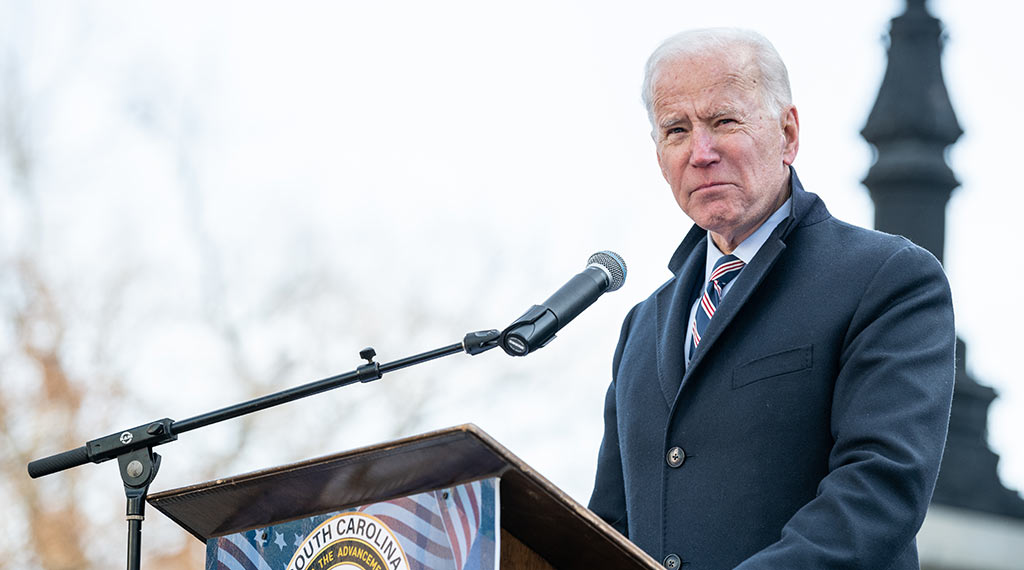Biden’s Pointless Summit Set Back American Security

Originally published in Newsmax
Any way you look at it, the Biden-Putin summit in Geneva was a net a setback for American interests and the security of humankind.
President Joe Biden said the meeting was “good” and “positive.”
As expected, he read President Vladimir Putin a laundry list of Russian transgressions.
Biden called for a stable and predictable relationship between the two countries and to place certain infrastructure off limits to cyber-attacks.
The two presidents agreed to hold new arms control talks, talks on cybersecurity, and to exchange ambassadors. Biden said he raised the case of Russian opposition leader Alexei Navalny and other human rights violations.
Unfortunately, these were positive but minor aspects of this summit that were overshadowed by the two presidents’ post-summit press conferences.
Biden gave a rambling media appearance in which he claimed he was “clear” with Putin on a range of issues and gave him a list of U.S. infrastructure against which Russia must not conduct cyber attacks.
Biden’s comments sounded listless and nervous — even defensive — and were sometimes incomprehensible. Biden later threw a tantrum when a CNN reporter asked him a mildly tough question.
By contrast, at his post-summit press conference, Putin came off as competent and confident. He first said there was “no hostility” at the meeting with Biden and said it was “constructive” and showed the leaders’ desire to understand each other.
But Putin also made it clear he completely rejected Biden’s criticisms by going on a tear promoting Russian propaganda. He denied persecuting Navalny and his movement, claiming (like Biden) that his political opponents had called for mass disorder and was extremist in nature.
Putin said the Russian government took action against Navalny’s movement to prevent riots in Russia like the “disorder, destruction, violations of the law” he accused the Black Lives Matter (BLM) movement of engaging in last year in the U.S.
Putin also implied Navalny was an American agent and accused the U.S. Congress of supporting undesirable Russian anti-government “political organizations.”
The Kremlin leader criticized those who rioted at the U.S. Capitol on January 6 and said many who were arrested were the victims of political and legal persecution.
On recent cyber-attacks against the U.S., Putin denied the Russian government was behind them. Putin also said that although the U.S. had requested information on cyber-attacks by hackers believed to be operating in Russia, the Russian government had asked the U.S. for information about cyber-attacks against Russia coming from the U.S. side and had not received a response.
The Russian leader also claimed Biden called him to walk back his remark to ABC News that Putin is “a killer.”
The White House has not admitted to this call, if it actually occurred. Putin said he was satisfied with Biden’s explanation and then lambasted the U.S. for human rights violations and accused the U.S. military of being responsible for the murder of civilians in Afghanistan and Iraq.
Putin added to this diatribe, “Who takes responsibility for that? Who is the murderer?”
It’s hard to see how the United States benefited from this spectacle of a summit.
Biden’s incoherent and doddering performance made him look weak to a huge global audience. Putin’s claim that Biden walked back his “killer” remark was especially damaging since it made it made Biden look confused and a man who does not stand behind his words.
On the other hand, Putin came off as strong and defiant.
He successfully used the summit to appear reasonable but used this huge media opportunity to promote outrageous disinformation about his country and the United States.
When the United States is perceived as weak, our enemies are emboldened.
This unnecessary summit will promote this perception and bolster the leader of a state determined to undermine U.S. interests globally and support American enemies.
Biden has shown the world that he is long in the tooth and unfit to represent the United States before foreign adversaries.
He gave Putin a big diplomatic victory and gained nothing for America in return.
Fred Fleitz, president of the Center for Security Policy, served in 2018 as deputy assistant to the president and to the chief of staff of the National Security Council. He previously held national-security jobs with the CIA, the DIA, the Department of State, and the House Intelligence Committee staff. Twitter @fredfleitz.
- The Iran nuclear negotiations: Why the humpty dumpty JCPOA should not be renewed - December 7, 2021
- Time to end diplomacy with Iran and admit Trump was right - December 3, 2021
- The US should walk out of the Iran nuclear talks - November 30, 2021
